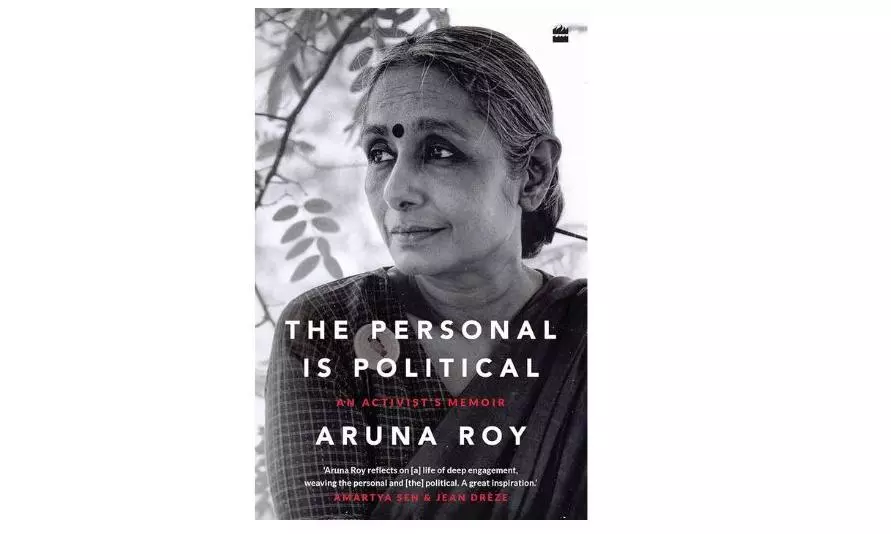Book Review | Lessons on how to navigate the Indian reality

Magsaysay Award-winning social activist Aruna Roy's memoir is a seismic jolt to the complacent conscience. She excavates the subterranean caverns of bureaucracy, where power masquerades as propriety. Her resignation from the gilded cage of the IAS was not merely a personal exodus, but a declaration of intent against an order of life that had morphed from colonial paternalism to corporate capitalism.
Roy’s narrative in The Personal is Political commences with a critical examination of her tenure within the Indian Administrative Service, spanning the years 1968 to 1975. Initially seduced by the allure of power and influence, she subsequently experienced a disillusionment engendered by pervasive corruption and bureaucratic inefficiencies.
Therefore, Roy’s geographical and existential migration from the urban epicentre of power to the rural periphery marks a profound transformation. Eschewing the trappings of bureaucratic authority, she immersed herself in the quotidian struggles of the rural populace. Her decision to join the Social Work and Research Centre, coupled with her husband’s pioneering efforts with the Barefoot College in Rajasthan, solidified her commitment to social change. The mud-and-stone hut in Devdungri became more than just a dwelling; it symbolised a radical departure. Within these austere confines, Roy embarked on a journey of self-discovery, her understanding of gender dynamics evolving as she engaged with the lived realities of rural women.
The Mazdoor Kisan Shakti Sangathan (MKSS), founded in 1990, emerged as a pivotal force in Indian civil society. Under the leadership of Aruna Roy, Nikhil Dey and Shankar Singh, the RTI movement gained momentum through public hearings, or jansunwais, which highlighted the extent of maladministration. The eventual passage of the RTI Act in 2005 marked a significant victory.
Building upon this momentum, the MKSS and its affiliates continued to engage with pressing national issues. The Mahatma Gandhi National Rural Employment Guarantee Act (MGNREGA), enacted in the same year as the RTI Act, exemplified the potential for policy change when informed by grassroots activism. Roy’s involvement in the National Advisory Council and her advocacy for the National Food Security Act capped her personal achievements. But in her analysis here, she also highlights the disintegration of civil liberties in present-day India. The erosion of democratic spaces has piqued her concerns, as also the growing footprint of authoritarianism in India.
Will this book ignite a bonfire of change, or merely die as a fleeting spark? Is the pursuit of utopia Sisyphean or is the journey itself its own reward? The Uruguayan writer and football journalist Eduardo Galeano sums it up best: “Utopia is on the horizon. I move two steps closer; it moves two steps further away. I walk another ten steps and the horizon runs ten steps further away. No matter how much I walk, I’ll never reach it. So what’s the point of utopia? The point is this: to keep walking.”
Dr Shubhda Chaudhary is an independent scholar and expert on Middle East affairs
The Personal Is Political
By Aruna Roy
HarperCollins
pp. 301; Rs 599

